With so much to do before running off to Canada I have accumulated an unprocessed backlog of Florida photos. As I write this, Summer Solstice is two weeks away, but south Florida has already settled into the rainy season pattern of sporadic showers and frequent afternoon rainstorms.
Cirrus clouds over the wetlands herald a change in the weather:
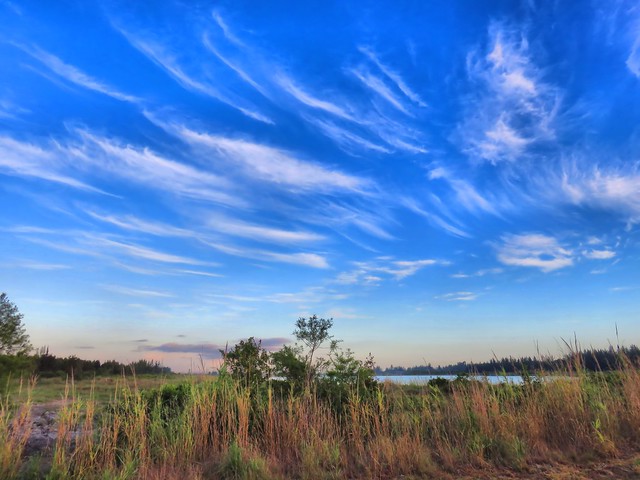
A morning walk is cut short by the appearance of looming cumulus clouds:
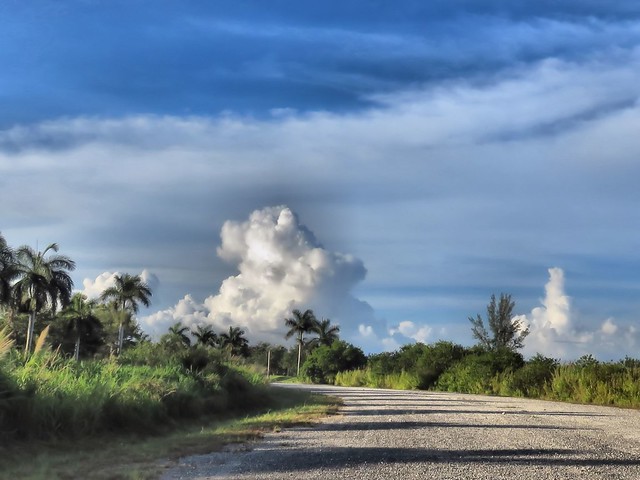
This is the view from our back patio on May 6. "Red in the morning, sailors take warning:"
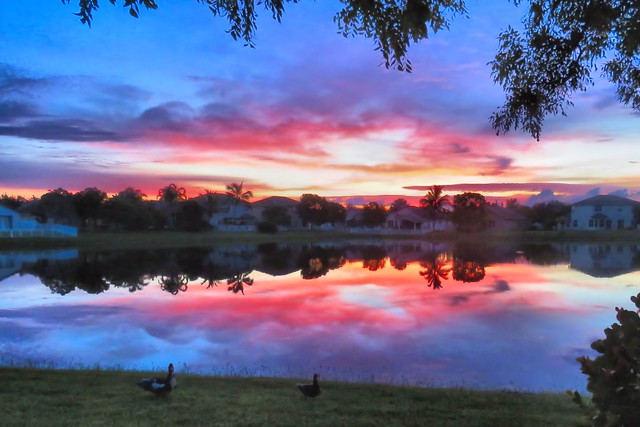
Although the variety of birds in late spring has decreased, there have been interesting developments in the devastated heron rookery. The Yellow-crowned Night-Herons, of which at least 8 pairs nested there last year, did not return. However, it was populated by at least three pairs of Green Herons, almost the same number as have bred there before. Somehow they accommodated to the dead and dying trees that border the herbicide-treated canal. Perhaps their smaller size and less inclination to build their nests directly over the water worked in their favor.
I found two of their nests, both out in the open and fully exposed to the elements and predators. As reported in my last post, I discovered the first on May 25. It was located very near or perhaps on the site occupied by a Yellow-crowned Night-Heron (cataloged as herbicide treated location #6.1). It held single nestling, not old enough for its first flight:
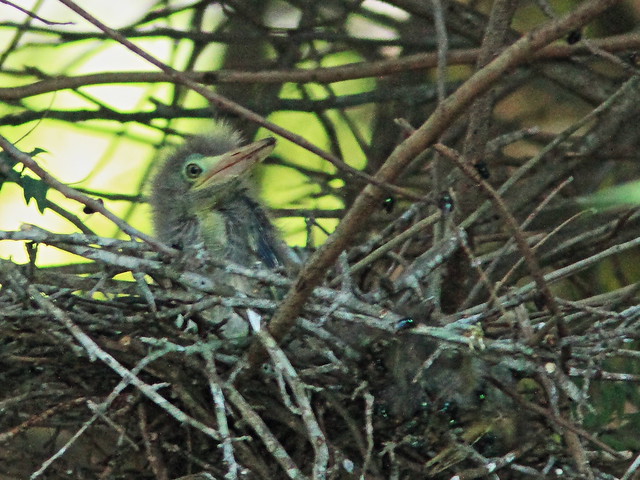
Two days later, that nestling is still present, and I find two older fledglings roosting on a tree limb. Their flight feathers are nearly fully developed but their caps are adorned with tufts of natal down:
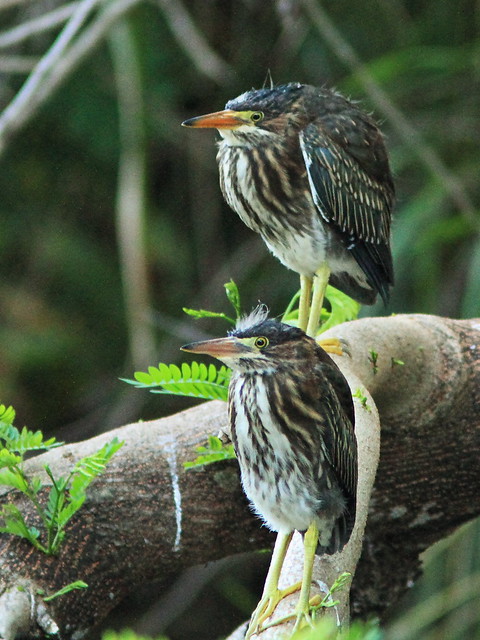
This tree limb had broken off and fallen into the canal. It serves as a convenient fishing platform for the juvenile herons. One casts its reflection in the still water:
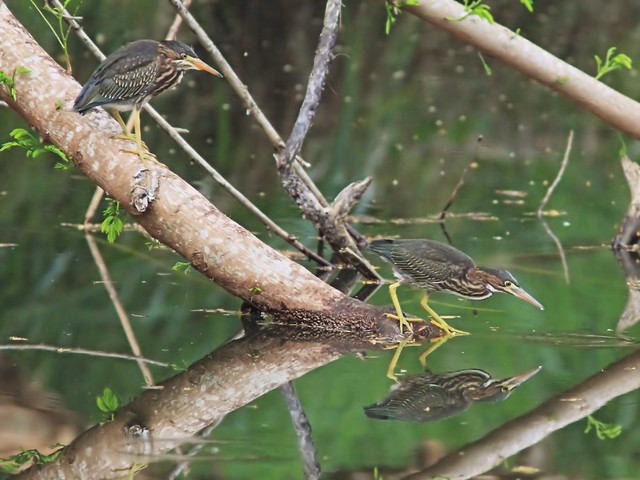
Although I could not find the older nest, I was surprised when movement in the foliage directed my attention to another Green Heron nest (herbicide treated location 7.5) . This flimsy nest contains two very active youngsters, perhaps a few days older than the one in the first nest:
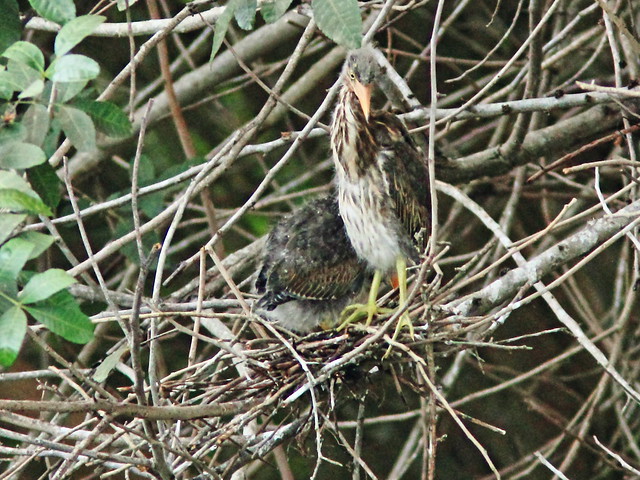
One of the nestlings is particularly adventuresome, walking about in the dead branches that surround the nest:
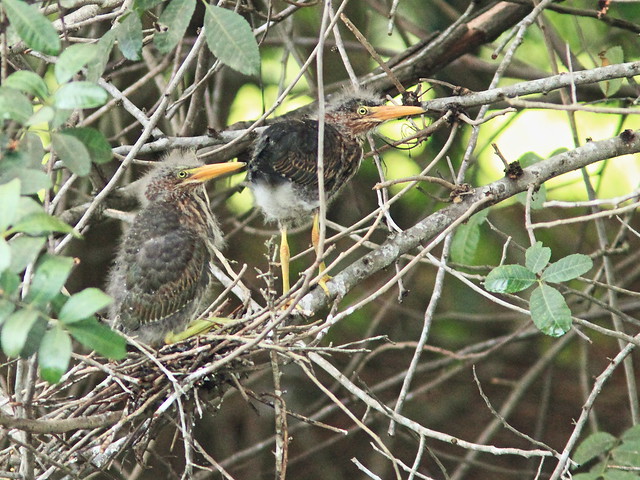
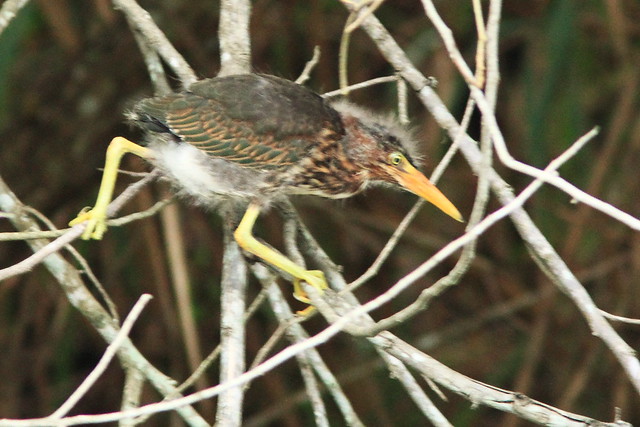
It tests its wings vigorously, with feet clinging fast to a branch:
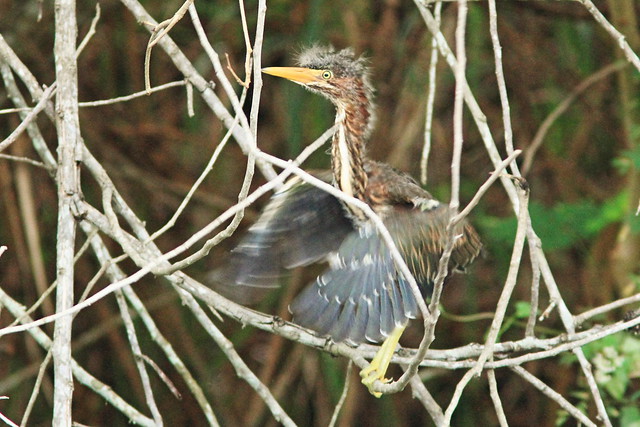
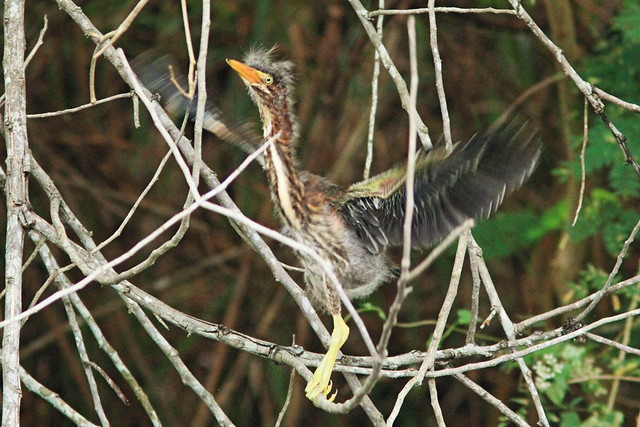
On the wetlands lake, one of the adults rests on a rock:
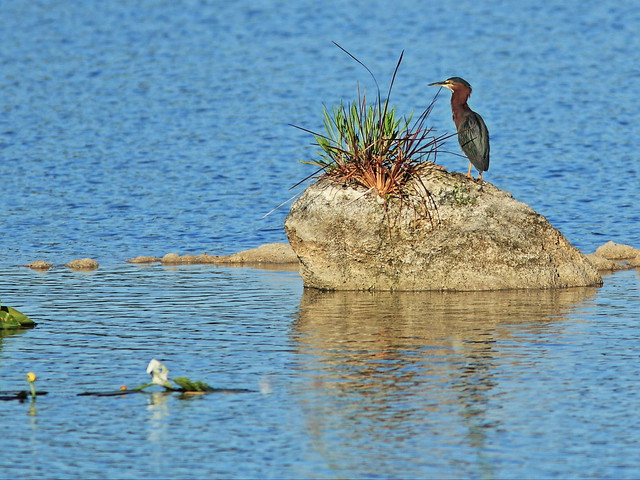
Some of the most common birds are uncommonly beautiful. I like to include them in their habitat instead of always trying for "field guide" photos. This Northern Cardinal really stands out when framed in greenery:
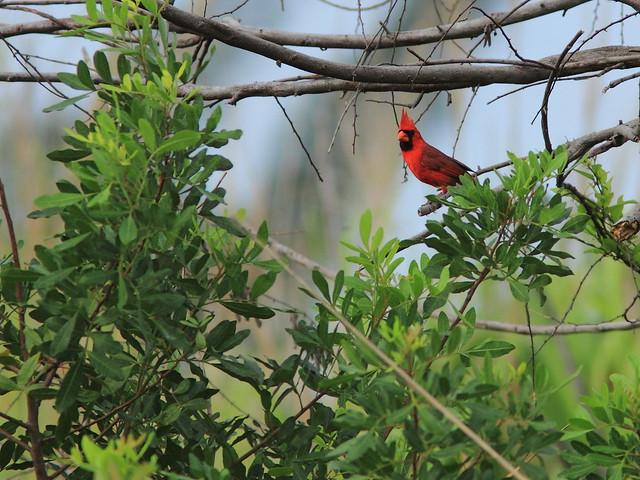
A Blue Jay takes a typically high perch in a leafless tree along the path, its color complementing the somber sky:
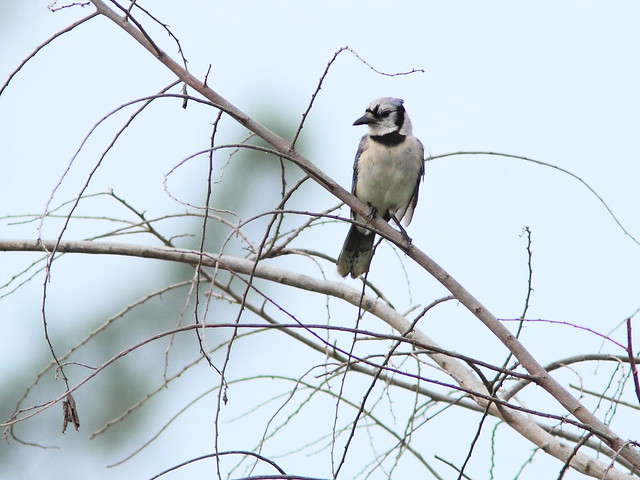
Nearby, two juvenile Loggerhead Shrikes wait to be fed...
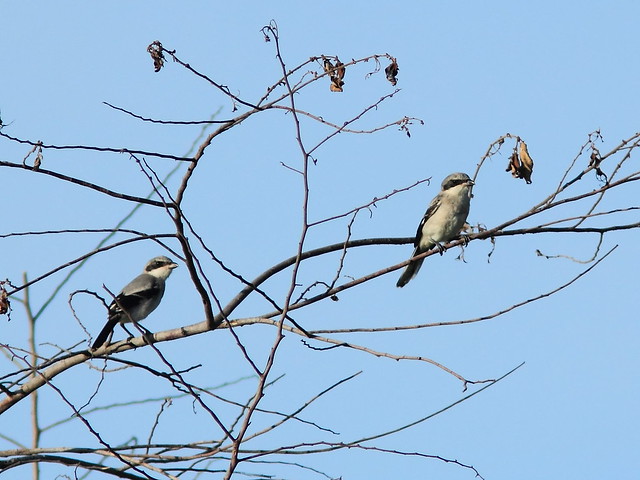
...as one of the adults looks on:
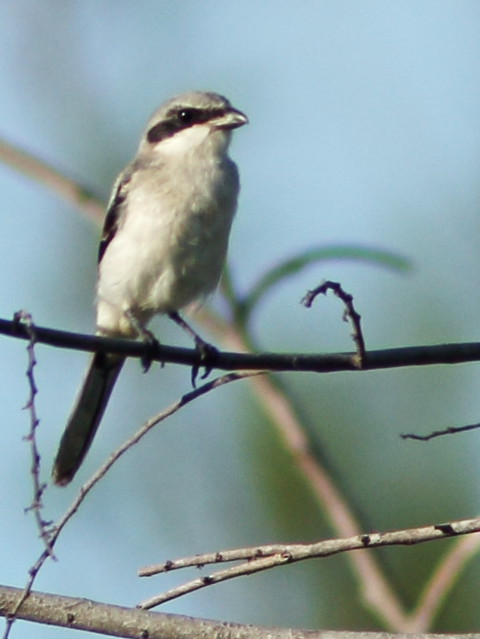
A Blue Jay harasses a Red-shouldered Hawk:
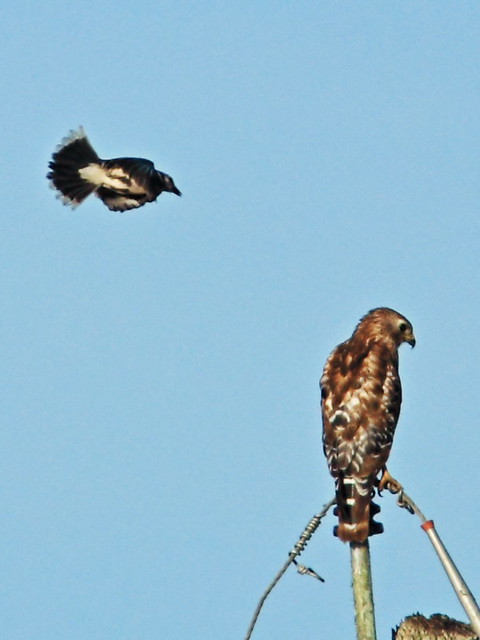
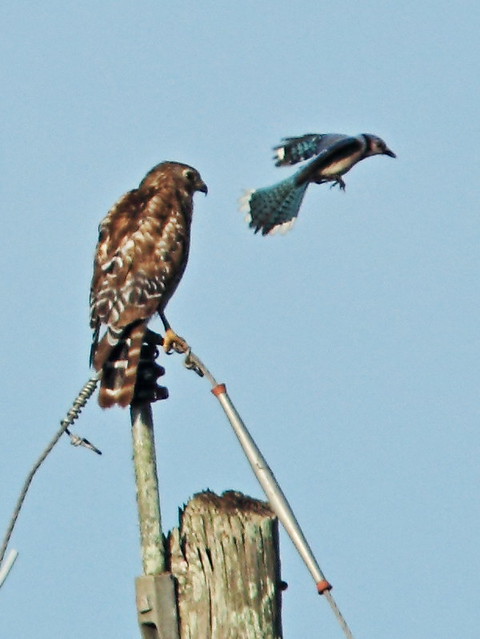
At nearby Chapel Trail Nature Preserve, another Loggerhead Shrike perches on a chain link fence...
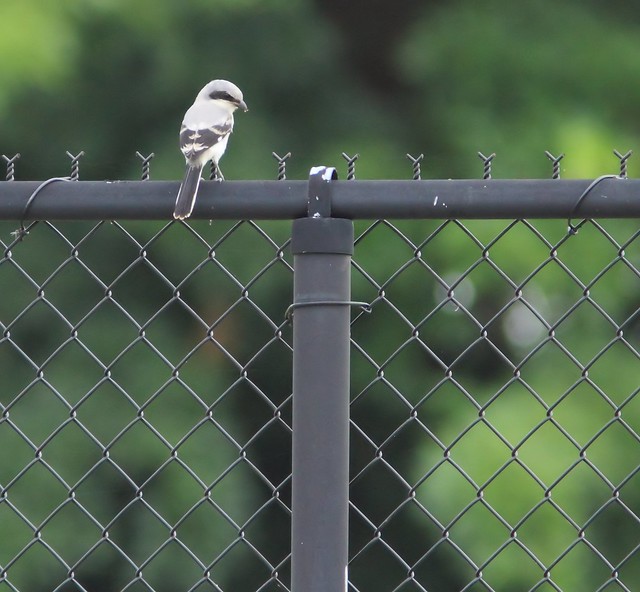
...and an oversize Raccoon thinks it is hidden in the rushes:
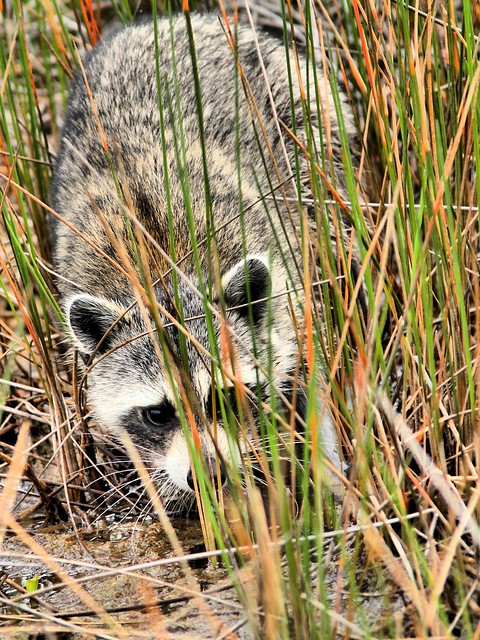
On the home front, a Muscovy Duck leads her 11 ducklings across our lake:
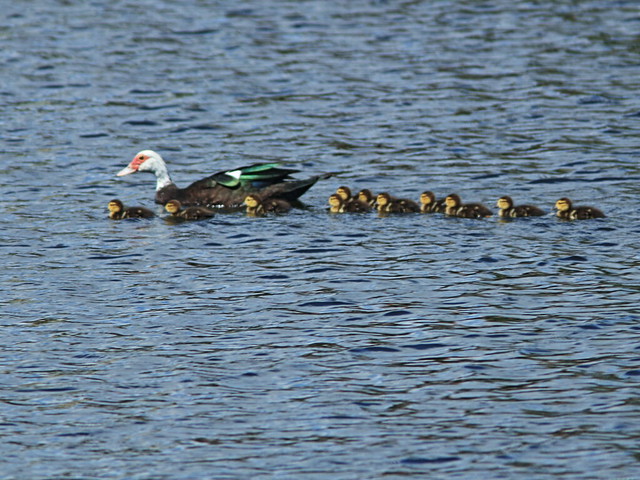
A Red-bellied Woodpecker enjoys one of our last Mangoes of the season. Our two small trees borne over 100 pounds of fruit, most harvested by our neighbor (with our permission) while we were away in Illinois:
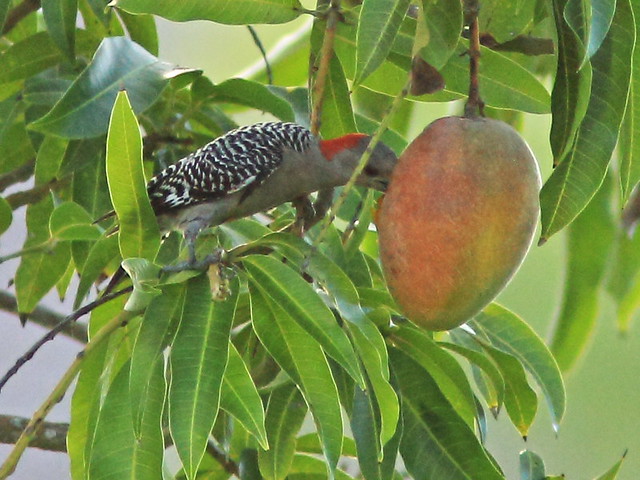
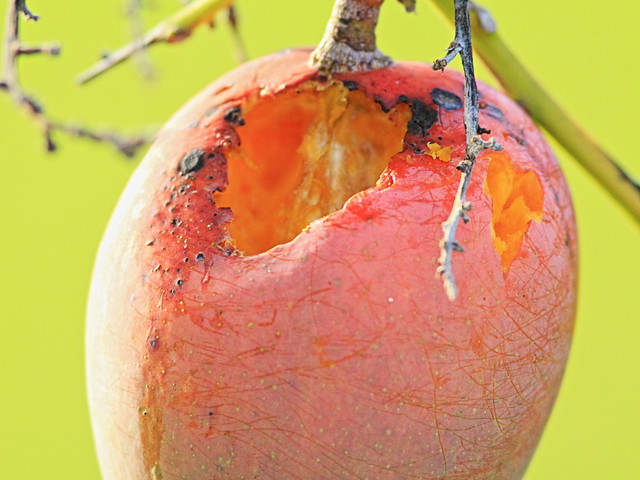
A small butterfly attracts my attention. It is almost black below and has an interesting pattern of wing markings. It is a Horace's Duskywing:
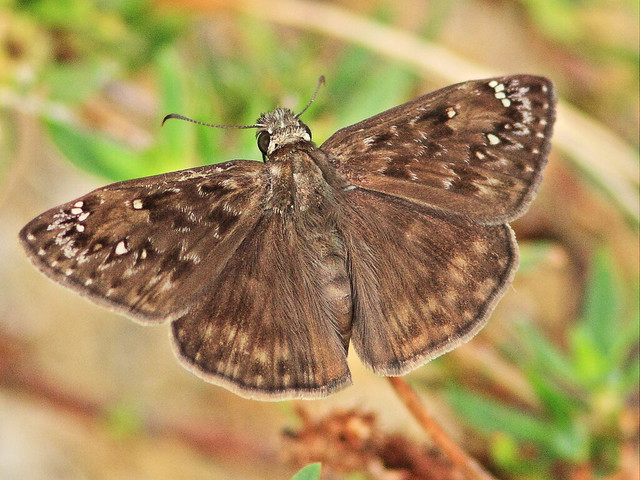
This is a "robo post," but I will get back to you as soon as I get back to a desktop. Since I will be on the road, I may not be able to post my theme photos to these favorite memes, but please visit the links to see many beautiful images on display:
Linking to Misty's CAMERA CRITTERS,
Linking to Eileen's SATURDAY'S CRITTERS,
Linking to GOOD FENCES by Tex (Theresa).
Linking to WEEKEND REFLECTIONS by James
Linking to BirdD'Pot by Anni
Linking to Wild Bird Wednesday by Stewart
Linking to I Heart Macro by Laura
________________________________________________